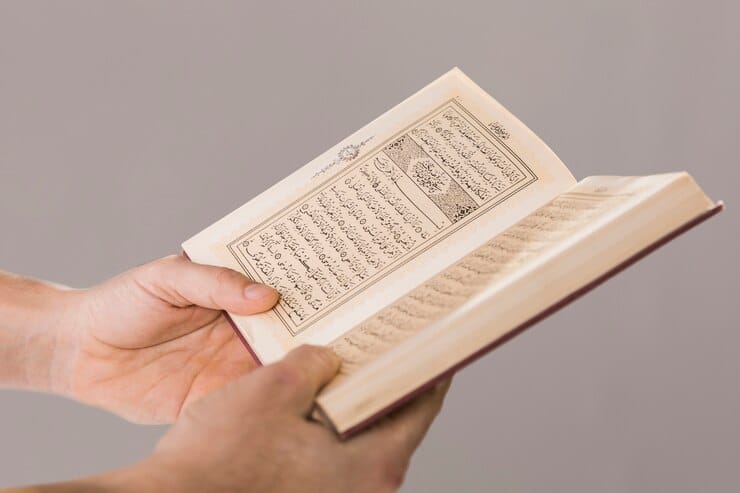Complete Guide to Surah Yaseen
Meaning, Benefits, and Recitation Tips
Surah Yaseen, revered as the “Heart of the Quran” (Qalb al-Qur’an), is one of the most cherished and powerful chapters in the Islamic holy book visit our dedicated Surah Yaseen page. Its profound spiritual significance, encompassing themes of faith, resurrection, and divine mercy, has captivated Muslims for centuries. This comprehensive guide delves into the meaning, immense benefits, and practical tips for reciting Surah Yaseen to help you fully connect with its transformative power.
Meaning and Overview of Surah Yaseen
Surah Yaseen is the 36th chapter (surah) of the Quran, comprising 83 verses (ayahs). It was revealed in Mecca, making it a Meccan surah, which typically focus on core tenets of faith: Tawhid (Oneness of God), Prophethood, and the Akhirah (Hereafter).
- The Mysterious Opening (Muqatta’at): The surah begins with the disjointed Arabic letters “Ya” (ي) and “Seen” (س). These are among the unique letter combinations that open several Quranic chapters, whose exact meaning is known only to Allah. They serve as a divine attention-grabber, emphasizing the Quran’s miraculous and inimitable nature.
- Core Themes and Narrative Flow:
- Affirmation of Prophethood: The surah defends the mission of Prophet Muhammad (PBUH) and, by extension, all messengers who were rejected by their people.
- The Parable of the Town: It recounts the story of a community that rejected three messengers, serving as a stark warning against disbelief and arrogance.
- Signs of Creation: Verses 33-44 beautifully illustrate Allah’s power through natural phenomena—the revival of dead land, the cycle of day and night, and the ships sailing through the seas—all as proof for those who reflect.
- The Reality of Resurrection: A central theme is the unequivocal affirmation of life after death, the Day of Judgment, and the ultimate accountability for one’s deeds.
- A Summary of the Quranic Message: In its concise yet powerful manner, Surah Yaseen synthesizes the entire message of the Quran: believe in the One God, follow His guidance, and prepare for the inevitable return to Him.
Spiritual and Practical Benefits of Reciting Surah Yaseen
The virtues of Surah Yaseen are highlighted in various Hadiths (sayings of the Prophet Muhammad PBUH), making its recitation a source of immense spiritual reward and worldly benefit.
- For Forgiveness of Sins: It is narrated that reciting Surah Yaseen at night seeking Allah’s pleasure results in the forgiveness of one’s sins (Ibn Hibban).
- Eases Life’s Difficulties: Often recited during times of distress, anxiety, or hardship, it is believed to bring relief (‘faraj’) and divine assistance, making difficult situations manageable.
- A Means of Intercession (Shafa’ah): The Prophet (PBUH) said, “Indeed in the Quran there is a surah which intercedes for its reciter and a means of forgiveness for its listener… it is Surah Yaseen.” (Al-Bayhaqi). This is why it is often recited for the deceased.
- Spiritual Protection and Blessings (Barakah): Many Muslims recite it to seek protection for their homes, families, and journeys. It is also recited to attract sustenance and blessings in one’s livelihood.
- Preparation for the Hereafter: It is highly recommended to recite it for those who are ill or near death. It is believed to ease the soul’s transition, provide comfort, and serve as a mercy for the departing believer.
- Fulfillment of Needs (Hajat): Many recite Surah Yaseen with a sincere intention (niyyah) when making a specific supplication (dua), believing it to be a means through which Allah answers prayers.
Effective Tips for Heartfelt Recitation (Tilawah)
To move beyond mere recitation and achieve a deeper connection (khushu’), consider these tips:
- Learn the Basics of Tajweed: Proper pronunciation is key to honoring the words of Allah. Focus on rules like elongation (madd), stopping (waqf), and pronouncing letters from their correct articulation points (makharij). Consider taking a class or using a qualified app.
- Understand the Meaning: Read the translation and tafsir (exegesis) alongside your recitation. Understanding the powerful narrative of the people of the town or the descriptions of resurrection will evoke a stronger emotional and intellectual response.
- Recite with Presence and Melody (Tartil): Recite slowly, contemplatively, and clearly. You don’t need to be a professional Qari; a simple, melodious tone helps in absorbing the rhythm and beauty of the verses.
- Set a Pure Intention (Niyyah): Before you begin, center your intention. Are you reciting for forgiveness? For a sick loved one? For peace of mind? A pure intention directs the spiritual energy of your act.
- Incorporate it into a Routine: Consistency is more valuable than occasional lengthy recitations. Many make it a practice to recite after Fajr (dawn) prayer, before sleeping, or specifically on Friday mornings, which is a blessed time.
- Make Dua After Recitation: The time after finishing the surah is a moment of accepted supplication. Raise your hands and sincerely ask Allah for your needs in this life and the next.
Surah Yaseen FAQs
Q: Why is it called the “Heart of the Quran”?
A: The heart is the center and lifeblood of the body. Similarly, Surah Yaseen is considered the spiritual center of the Quran because it so comprehensively encapsulates its core messages of Tawhid, Prophethood, and the Hereafter in a powerful, condensed form.
Q: How often should I recite Surah Yaseen?
A: There is no obligatory number. However, based on prophetic traditions emphasizing its virtues, many Muslims recite it once daily (often after Fajr or before sleep) or at least once a week (on Fridays).
Q: Can I recite it for someone else?
A: Absolutely. You can recite it on behalf of the sick, the deceased, or for the general well-being of your loved ones. The spiritual benefits and rewards can be dedicated to them.
Q: Are the benefits of Surah Yaseen proven?
A: The benefits are rooted in Islamic faith and tradition, based on Hadiths and the experiences of believers over 1400 years. They are matters of spiritual belief and divine promise, not empirical scientific measurement.
Q: What is the best time to recite Surah Yaseen?
A: While it can be recited at any time, certain times are especially virtuous: at night, after Fajr prayer, and on Fridays.
Conclusion
Surah Yaseen is more than just a chapter; it is a profound spiritual tool for healing, guidance, and connection with the Divine. Its timeless message serves as a reminder of life’s true purpose and offers immense comfort and hope to the believer. By approaching it with understanding, reverence, and consistency, you unlock its potential to transform your heart, ease your burdens, and draw you closer to Allah. Make engaging with this magnificent surah a cornerstone of your spiritual practice.






